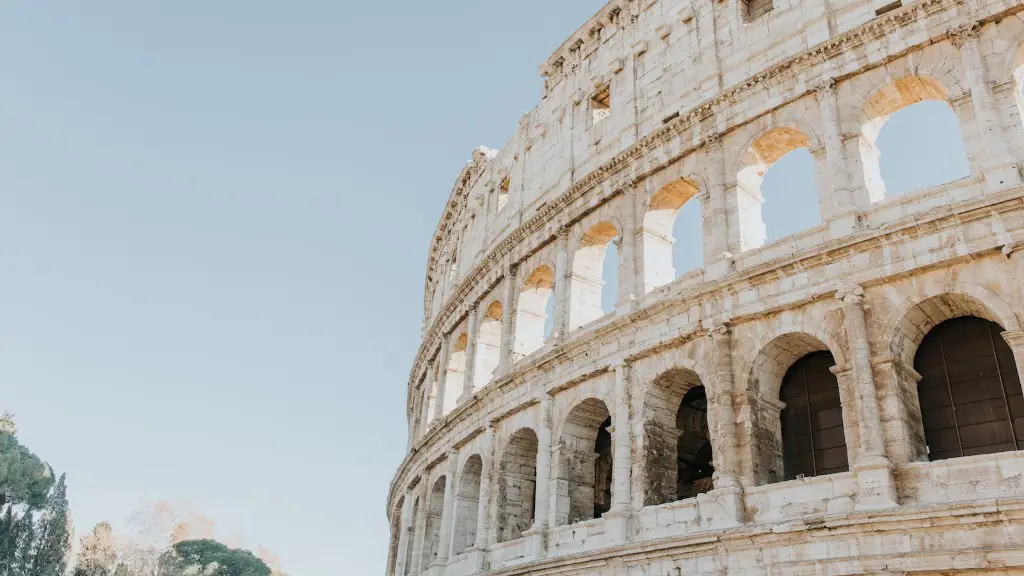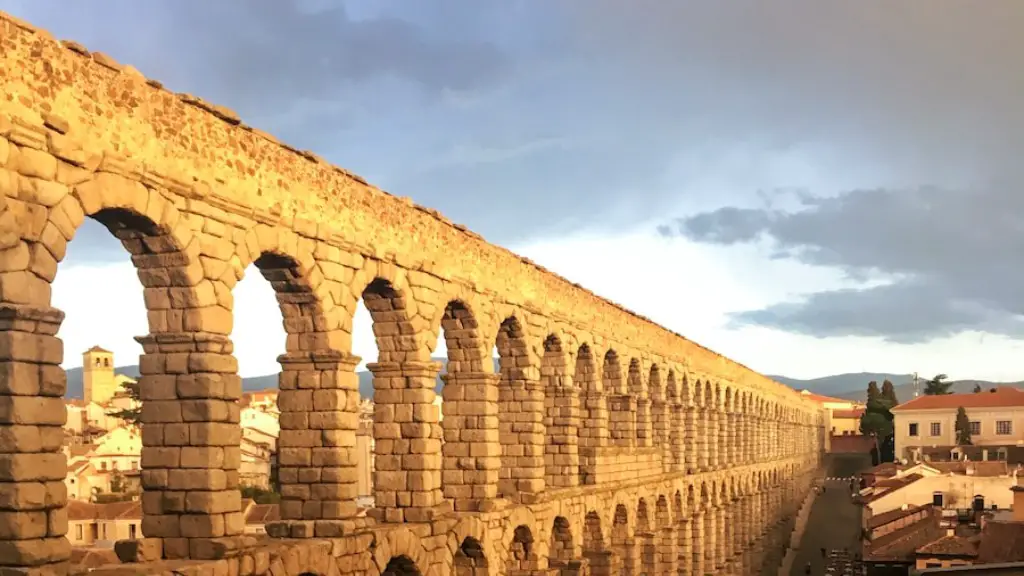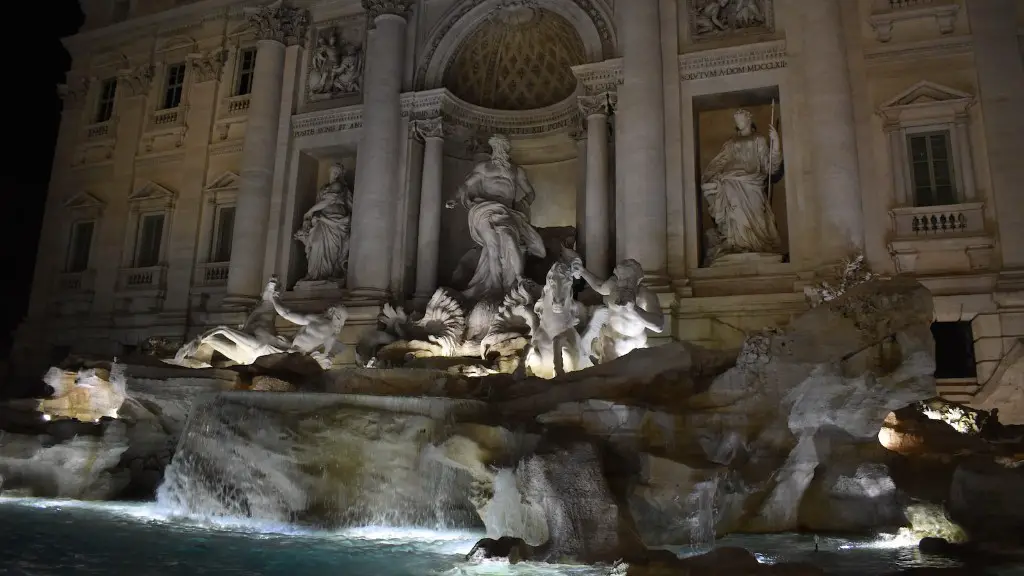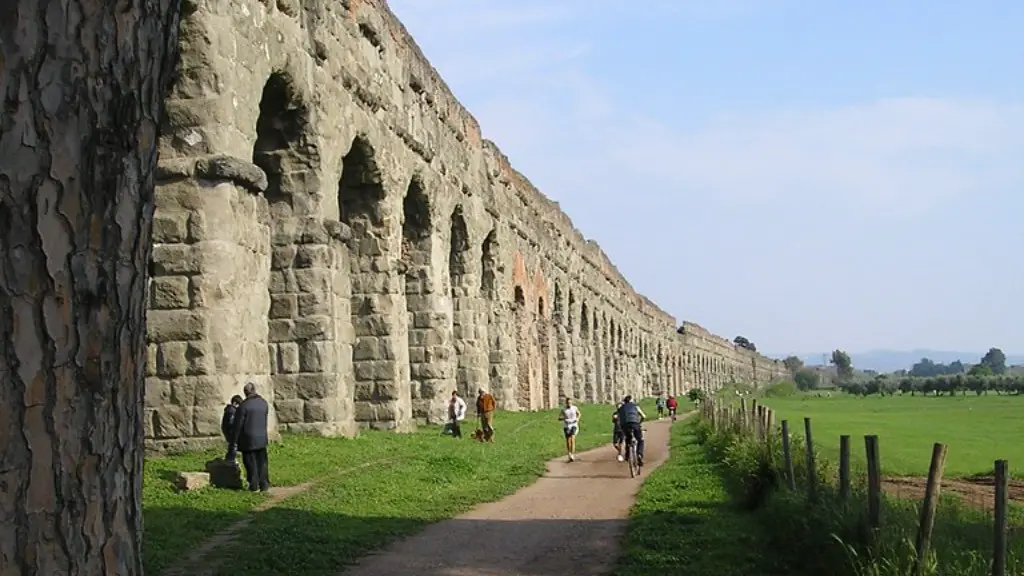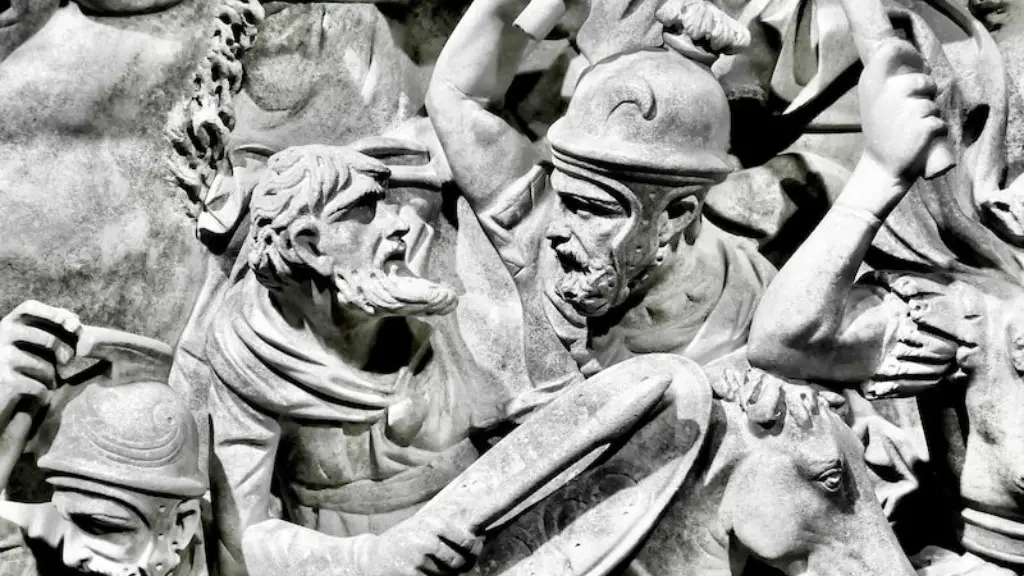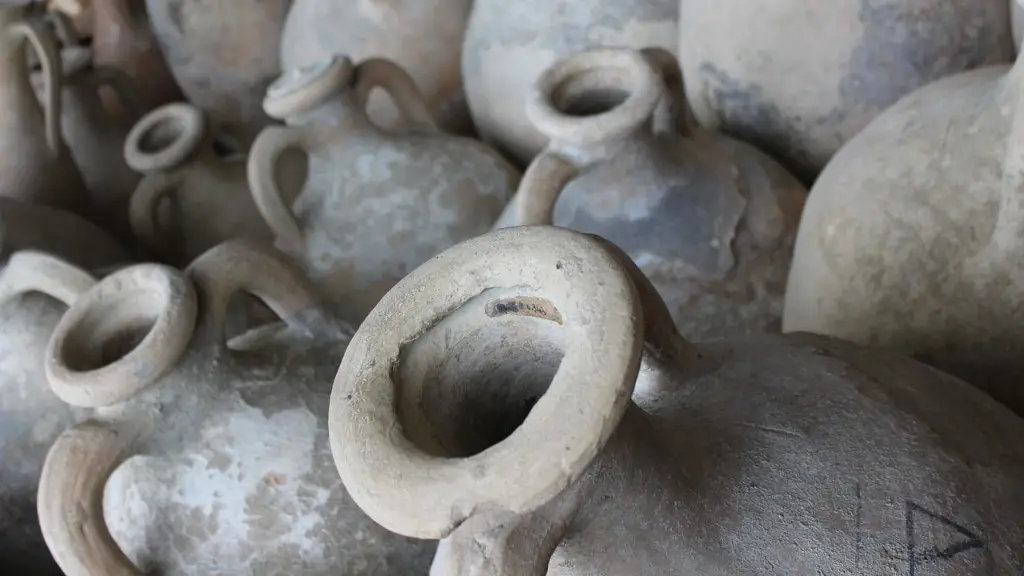Rome, founded in 753 B.C.E, was the largest and most powerful city-state in the ancient world. Rome’s success as a civilization was due to many factors, including its strategic location, its grandiose architecture and engineering, its sensible legal system, and its military power. In addition, Rome’s achievements in governance, art, and literature have had a lasting impact on Western civilization.
The ancient Romans were a major force in world history for over two centuries. During that time, they made significant contributions in a number of different areas. Perhaps most notably, they were responsible for the development of classical civilization in Western Europe. They also made significant contributions to politics, law, art, literature, and architecture.
What did ancient Rome contribute to the modern world?
The Roman influence in modern buildings can be seen in many ways. The most obvious is in the design of the buildings themselves, which often feature elements such as domes, pillars, and arches that are borrowed from Roman architecture. But the influence of Rome can also be seen in the materials used to construct modern buildings. Tiles, bricks, and concrete are all common building materials that have their roots in Roman engineering and construction. Even some of the most common structures in our modern world, such as sports arenas, spas, and supermarkets, are based on Roman originals. So next time you’re admiring a beautiful building or enjoying a leisurely activity in a public space, take a moment to think about the Roman influence that helped make it possible.
The Roman civilization was one of the most influential and powerful empires of its time. Even now, their developments continue to touch our lives and contribute to the world. Here are some examples:
Cement: The Romans were the first to develop cement, which is a key ingredient in concrete. Concrete is used in countless construction projects today, from buildings to bridges to roads.
The Aqueduct: The Roman aqueduct system was one of the most impressive engineering feats of its time. It brought fresh water to Roman cities and helped to improve sanitation. Today, we still use aqueducts to bring water to cities.
Roads: The Roman road system was the most advanced of its time. It allowed for quick and efficient transportation of people and goods. Today, we still use roads to travel from place to place.
Social care and welfare: The Romans were the first to develop systems of social care and welfare. They established hospitals and orphanages to care for the sick and needy. Today, we still use these same systems to care for those in need.
Julian Calendar: The Roman Julian calendar was the most accurate calendar of its time. It was used for centuries before being replaced by the Gregorian calendar.
What was Rome’s impact on the world
The Romans were one of the most advanced civilizations of their time. They changed the western world by spreading their innovations in engineering throughout the empire. They built long lasting roads that helped to increase trade and also helped their armies to quickly move about the empire. Many of these roads are still used today. The Roman empire was one of the largest empires in history and their impact is still felt today.
The Romans were responsible for many things that we take for granted today. Here are 13 things that they did for us:
1. Fast food: The Romans were the first to introduce street stalls and ‘food on the move’ as we might think of it today.
2. Advertising and trademarks: The Romans were the first to use signs and billboards to advertise their businesses.
3. Plumbing and sanitation: The Romans were the first to develop plumbing and sanitation systems that are similar to what we use today.
4. Towns: The Romans were the first to develop towns and cities as we know them.
5. Architecture: The Romans were responsible for many of the architectural styles that we take for granted today, such as the use of arches and vaults.
6. Roads: The Romans built an extensive network of roads that allowed for trade and travel throughout the empire.
7. Our calendar: The Roman calendar was the basis for the calendar that we use today.
8. Law and order: The Romans established a system of law and order that is still used in many countries today.
9. Language: The Latin language that the Romans spoke was the basis for many of the languages
What did Rome invent that we use today?
The ancient Romans were masters of engineering and construction, and their use of hydraulic cement-based concrete was a big part of that. This type of concrete is still used today in many iconic structures, like the Colosseum and the Pantheon. It’s a testament to the Roman’s skill and ingenuity that these buildings have stood the test of time.
The ancient Roman civilization was one of the most influential in shaping the Western world. The Romans were a major force in the development of law, war, art, literature, architecture, technology and language. The Roman Empire was one of the largest empires in world history and at its peak controlled a territory that extended from Britain to North Africa and from Spain to the Middle East. Roman civilization was characterized by a number of impressive achievements including the construction of a massive network of roads and aqueducts, the founding of cities and the development of classical civilization. The Roman Empire was also responsible for the spread of Christianity throughout the world. The legacy of the Roman Empire is still very evident in the modern world.
What are 3 things we get from ancient Rome?
A few of the things that are owe their origins to the Roman civilization are roads, central heating, concrete, the calendar, and even flushing toilets and sewers. The old proverb “all roads lead to Rome” comes from the fact that, originally, many roads did lead to the heart of the Roman empire. This is because the Romans were such prolific builders and engineers. They are even responsible for inventing concrete, which is one of the most important building materials today. So, next time you’re driving on the highway or turning up the heat in your home, remember the Romans!
The ancient Romans were some of the most advanced people of their time in terms of science and technology. They were able to develop aqueducts and other systems to help with the flow of water, which was a major feat at the time. Additionally, they were extremely skilled engineers and understood the laws of physics well enough to apply them in practical ways. This ultimately led to them shaping the way the world does certain things, which is a testament to their advanced level of knowledge and skill.
What technology did the Romans Give us
The roads were built for trade, transportation, and military purposes. The Romans built concrete buildings that were earthquake resistant. The medical tools for the battlefield allowed the soldiers to be treated quickly and efficiently. The Julian Calendar was created to provide a more accurate way to keep track of the days.
Aqueducts were one of the most impressive feats of engineering achieved by the Roman Empire. They were used to transport fresh water from distant sources into cities and towns, and some are still in use today. The Trevi Fountain in Rome, for example, is supplied by a restored aqueduct.
Why is the fall of Rome important in world history?
The fall of the Roman empire in the 5th century AD marked the end of rule by a single power in Europe. For the next 1000 years, Europe was marked by a series of imperial monopolies, which provided peace and stability, but also tended to stifle experimentation and dissent.
The Roman calendar was based on the lunar calendar, with 12 months of 30 or 29 days each. The calendar was adjusted every few years to keep it in sync with the seasons. The Roman calendar was the basis for our modern calendar.
What are 10 important facts about ancient Rome
The Roman civilization was one of the most influential in the world. Here are ten facts about the Romans that you may not have known!
1. The Romans would have baths together. This was not only for hygiene but also for socializing.
2. The Romans invented loads of things! From concrete to the postal system, many of the things we use today were first invented by the Romans.
3. The Roman’s most popular form of entertainment were Gladiator fights. These were often brutal and sometimes even deadly.
4. The rich Romans had servants. This was common in ancient Rome and allowed the wealthy to have more leisure time.
5. We still use some Roman roads. Many of the roads built by the Romans are still in use today.
6. They worshipped a lot of different Gods and Goddesses. The Roman pantheon is one of the largest of any ancient civilization.
7. Ancient Rome is underground. Much of the ancient city of Rome is now underground due to centuries of build-up.
8. The Roman Empire was huge! At its peak, the Roman Empire covered over two million square miles.
9. The Roman army was very effective. At its height, the
Although Rome is no longer the home of the Catholic Church, it remains an important center of Christianity. Christianity is the largest religion in the world, and the Catholic Church is the largest Christian denomination. Rome is home to many of the most important Christian sites, including the Vatican, St. Peter’s Basilica, and the Sistine Chapel.
What was the most important achievement of ancient Rome?
The most obvious achievement of the Romans was their vast empire, which spread over three continents. It lasted for a long, long time. From 625 BC to AD 476, the empire lasted 1101 years. If one includes the eastern Roman empire, which lasted until AD 1453, the empire lasted 2078 years.
Aqueducts were a huge engineering feat for the Romans. They allowed for a consistent water supply and efficient water drainage. This was crucial for keeping Rome clean and healthy. Aqueducts are still used today in many parts of the world.
Conclusion
Ancient Rome made many contributions to the world. They were one of the first civilizations to have a form of government similar to what we have today. They also developed systems for sewer and aqueducts that are still in use in some parts of the world. Ancient Rome was also responsible for the development of roads and transportation.
The ancient Romans were a prolific people, contributing much to the world. They were great architects and engineers, responsible for some of the most impressive buildings and structures in history. Ancient Rome also gave the world fresh water plumbing and sanitation, the Julian calendar, and many words and phrases in common use today. The list of Roman contributions is truly impressive.
